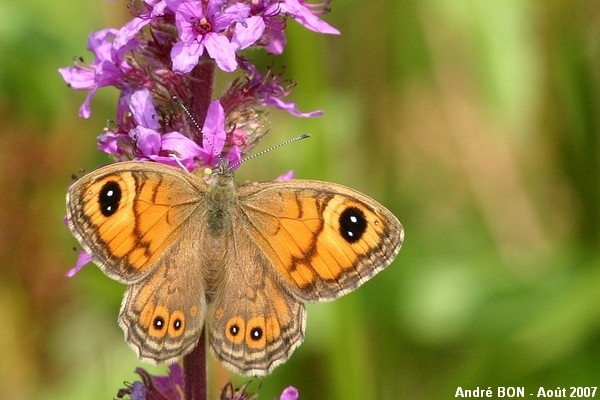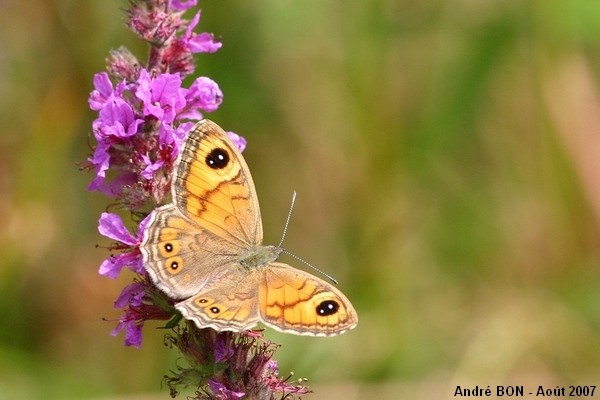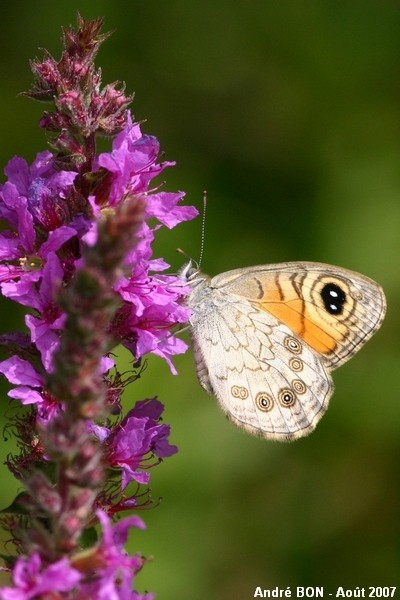


| Large Wall Brown (Lasiommata maera (Linnaeus, 1758)) |



|
|
Scientific name: Lasiommata maera (Linnaeus, 1758) Common name: Large Wall Brown French name: Ariane, Némusien Order: Lepidoptera Suborder: Rhopalocera Family: Nymphalidae Subfamily: Satyrinae Wingspan: 44-56mm. Biotope: Rocky areas and short grass areas. Fallow lands. Woodland edges and clearings. Geographic area: Europe, missing in the British Isles and in the extreme north of Scandinavia. North Africa, Central Asia. Flight time: June to September. Number of generations : 2 Caterpillar: Green with paler stripes. Host plant: Different Graminae including Sheep's fescue (Festuca ovina), Wood Small-reed (Calamagrostis epigejos) and Yorkshire Fog (Holcus lanatus). |
The upper side of the Large Wall Brown's wings shows bright orange marks delimited by dark brown bands. There is a double eye-spot and a small auxiliary mark near the forewing tip. This eases the identification from the Wall Brown which is also a little smaller size. The upper side of the hindwing shows two or three white-centred black eyespots circled with yellow. The underside of the forewing is similar to the upper side. The underside of the hindwings shows greyish-brown patterns with clearly visible eyespots. Females are a brighter colour than males. They are usually larger than males.. Large Wall Browns overwinter as caterpillars. |
| [To know more about the Large Wall Brown] [Next picture] [Top] |

|
The double eye-spot and the small auxiliary mark are the key to the identification of the Large Wall Brown. The Wall Brown only shows a single eye-spot. |
| [To know more about the Large Wall Brown] [Next picture] [Previous picture] [Top] |

|
The bright and pale colours indicate that this one is a female. |
| [To know more about the Large Wall Brown] [Previous picture] [Top] |

|
The underside of the hind wing is very nice with a beautiful row of eye-spots. |